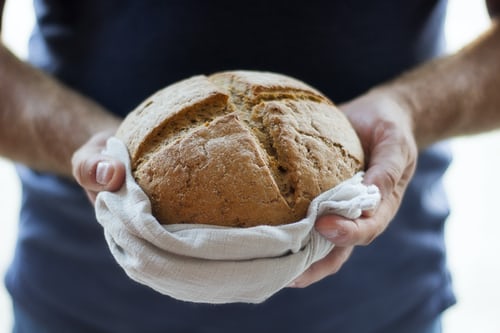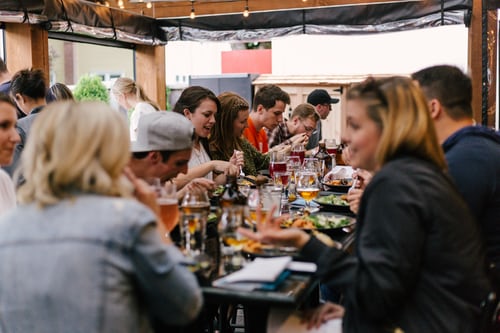By: Sr. Constance Joanna, SSJD.
Genesis 3.8-15 ~ Psalm 130 ~ 2 Corinthians 4.13 – 5.1 ~ Mark 3.20-35
A number of things have happened this week that have made me think about what the kingdom of God is really about. The tragic discovery of the children’s bodies in Kamloops and the almost-simultaneous inhibiting of the Bishop there while allegations of sexual misconduct are being investigated. Both events bring up memories for so many people of past trauma. What does the Kingdom of God mean in a situation like this? Who are we as church, the body of Christ? What does it mean for every Christian community – whether a parish or a community like ours, both made up of fallible, sinful human beings. How can we model what it means be Christ for each other and for the world around us?
As I’ve reflected on today’s readings in the context of all that has gone on and is going on in our little microcosmic community, our national church, and the world scene, one small word has come to the fore: that is the word “kin” and the way we sometimes use “kindom” as a more inclusive version of ”kingdom.”
There are many resonances of this word. There is of course the sense that in God’s reign we find a new kind of kinship, or family. On a personal level it reminds me of the concept of “all my relations” as used in an indigenous context but in fact that is the same word that was always used in my Swedish family for gatherings of the extended family. And kindom also resonates with the lectures some of us have been watching with Sylvia Keesmat on “Healing the Earth” because “all my relations” includes our kinship with the earth itself.
It starts in the beginning, where Adam and Eve are not only alienated from each other and from God, but from the earth itself. And that is where the readings this morning start, when God places in a garden a man and a woman created as kin with God – in the image of God. They are the gardeners who have the power either to steward the beauty and resources of the land or to exploit it, damaging both the earth and the relationships of human beings in the earth. Psalm 130 expresses the deep sorrow of the Babylonian exiles who have been separated both from their land and from their human kin who remained behind In Israel.
But in both Mark’s gospel and in the letter to the Corinthians we see a way forward, a way of healing and restoration of right relationships – both among people and between people and the earth.
The reading from Mark is a difficult one, but the structure itself of this 3-part pericope is revealing and can help us see the light in the darkness. It starts with Jesus’ family questioning who their kinsperson Jesus really is, along with the scribes who technically are also part of Jesus’ kin. The passage ends with the opposite – with Jesus’ questioning who his family, his kin, really are, shifting our perceptions. And In the middle we have Jesus’ strange and difficult statement about the sin against the Holy Spirit.
So first, his family and the scribes. They cannot understand what has happened to Jesus – the obedient, studious boy who learned the carpenter’s trade from his adopted father and had a secure life ahead of him, presumably becoming the father of his own progeny and teaching his sons the carpenter’s craft. But instead he seems to have gone off the rails – left everything good at home and become an itinerant preacher of some crazy ideas, fancying himself a healer with special connections with God. You can kind of understand the fear of his family and their concern for him. Even the scribes from Jerusalem – intelligent, learned men of God for whom the people had strong admiration and respect – are saying that Jesus is in league with Satan.
Now we know that Mark, like the other gospel-writers, is not describing one specific event. He is writing decades after the resurrection of Jesus and giving us vignettes that describe the kinds of talk and events that went on in Jesus’ public ministry. In Mark especially, where the opposition to Jesus develops very early, Jesus is embroiled in a fight right from the beginning as he is driven out into the wilderness to be tempted by Satan immediately after his baptism. His ministry of healing and teaching is a response to the evil he finds in the world around him – a separation of people from each other and from the earth, leading to wars, destruction of the land, genocide, and many other evils. Jesus incarnates in his very person the reconciling love of God, and that is frightening and a threat to people around him.
So they accuse Jesus of being in league with Satan – which is what people still do when they are frightened and can’t understand. But Jesus points out that he wouldn’t be driving out demons if he himself were a demon. A house divided against itself cannot stand – read “kin who are divided among themselves cannot stand.” “A community divided among itself cannot stand.” Then Jesus uses another metaphor: You can’t steal from a strong person’s house without tying up the strong person first. Jesus has to bind Satan in order to forgive and love people into a new kinship with God and each other. Jesus uses these responses to his kinfolk and the scribes in order to show he is in relationship with God, with all that is good and life-giving – not with evil which is life-destroying.
That’s all fairly easy to see. But the middle paragraph is puzzling. God will forgive people for virtually any sin no matter how horrible, but cannot forgive a blasphemy against the Holy Spirit. There are lots of opinions among scholars about exactly what Jesus means here, especially because he has been living and preaching the unconditional love of God. But what I think Jesus is getting at is that it’s impossible to forgive if the person doesn’t see their action as sinful. Blaspheming against the Holy Spirit can’t be forgiven – not that God might not want to but because the person is not open to it – does not realize the need for forgiveness. The sin against the Holy Spirit here, I think, is the sin – or blindness – of believing that what is Holy is evil, and what is evil is Holy. If you believe that good is bad and bad is good, how can you be forgiven? You can’t see what is real.
From the point of view of the authorities – and even his own family – Jesus is under the influence of evil forces. But from Jesus’ point of view (and ours with hindsight) it is the authorities who have been manipulated and deceived by a world view that separates them from the original intent of God’s creation. They simply cannot see the wisdom of the Holy Spirit as opposed to the false facts of the Evil Spirit. (And the reference to the Holy Spirit here would be in the Old Testament sense, as the exchange Mark is describing took place long before Pentecost.)
Jesus makes this even more clear in the third and final part of the passage. His own family, following the lead of the scribes, have been misled by a false world view. Real kinship is not just blood relationships but relationships of love, of caring, of being in right relationship with each other and God. In the end, Jesus’ family comes together with the disciples so the kindship is extended – John looks after Mary, and James becomes the leader of the church in Jerusalem. But at this early point in Jesus’ ministry he is saying that there is something even deeper than blood relationships.
I think the letter of Paul to the Corinthians sums it up and offers encouragement to all kinship groups including Christian communities like our own. We are all – parishes, small communities, monastic communities – subject to competition rather than cooperation, arising out of fear of each other. But Paul says that when that happens, when houses are divided against each other, when people become afraid of each other, when trust evaporates, then deep loving relationships are impossible:
“We know that the one who raised the Lord Jesus will raise us also with Jesus, and will bring us with you into his presence. Yes, everything is for your sake, so that grace, as it extends to more and more people, may increase thanksgiving, to the glory of God.
So we do not lose heart. Even though our outer nature is wasting away, our inner nature is being renewed day by day. For this slight momentary affliction is preparing us for an eternal weight of glory beyond all measure, because we look not at what can be seen but at what cannot be seen; for what can be seen is temporary, but what cannot be seen is eternal.”
May that give us courage and strength as we go through challenging times in our own kinship in SSJD – through COVID and illnesses of sisters and the tremendous energy and love it takes to work through our visioning process. May we sisters, like Jesus’ family, find our real kinship as disciples and apostles in Jesus’ kindom, among all his relations, Mary and John the beloved disciple and Peter and Paul and all the rest. Amen.





